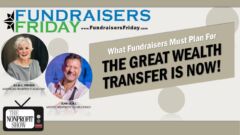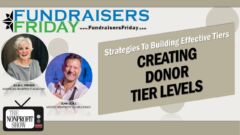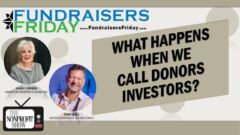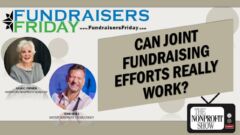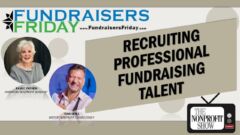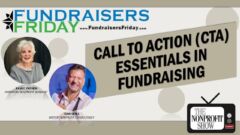
FUNDRAISER’S FRIDAY
Fundraisers Friday is the weekly live series designed for nonprofit professionals serious about revenue growth, donor relationships, and sustainable fundraising strategy.
Whether you’re starting fresh or leveling up, each episode gives you proven strategies from fundraisers who understand the work — and what it really takes to succeed. From major gifts and grants to donor engagement, board partnerships, stewardship systems, and emerging fundraising tech, these conversations offer the clarity and confidence you need to raise more — even when internal support and resources feel limited.
Join us live every Friday on The Nonprofit Show and build the business engine behind your mission.
Fundraisers Friday: Learn boldly. Fund smarter. Lead your nonprofit to lasting financial success.



